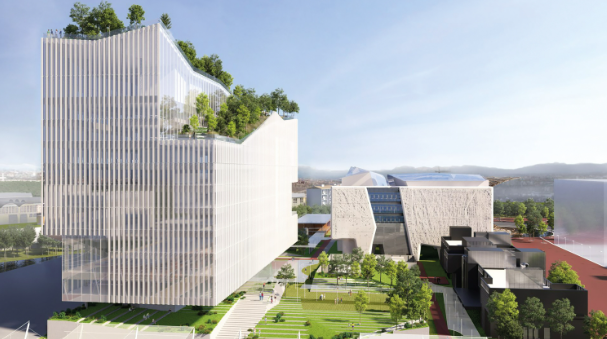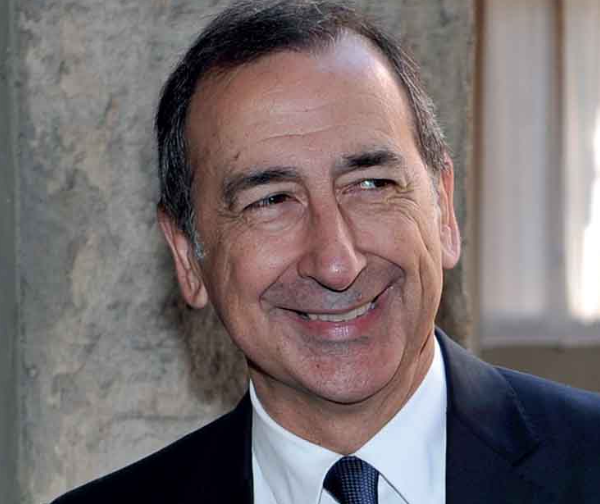INSIGHTS SERIES
Milan’s new innovation era
Italy’s economic hub makes its mark on the European tech map

In association with
Milan’s innovation ecosystem has recently gained international investor attention. Between January and September 2022, more than €1.3bn was invested into Milan’s start-ups — an increase of 90% on full-year 2021 figures and beating all previous full-years on record, according to PitchBook data.
The city, which is capital of Italy’s most developed region, Lombardy, has attained its first two homegrown ‘unicorns’, or start-ups valued above $1bn. Entrepreneurs and investors believe the city has all the ingredients, including infrastructure, capital and talent, necessary to become a leading European technology hub.
“Milan’s innovation ecosystem is finally experiencing a flourishing season and is ready to start that growth path toward a size in line with other European cities,” says Ignazio Castiglioni, founder and CEO of HAT Group, an Italian multi-asset investment firm.
Other local investors say the surge in capital flows has been a long-time coming, given Milan’s internationally competitive business community and industrial heritage. Around 5000 multinationals have a base in the Milan metro area, employing 520,000 people across a host of activities in sectors including energy, manufacturing, life sciences and professional services, according to YesMilano figures.
Andrea Di Camillo, the founder of venture capital (VC) fund P101, says that Milan is like the “Palo Alto of Italy”, likening it to the prominent US west coast tech hub.
“If you decide to fly to Italy to see where innovation happens, you will come to Milan,” he says, adding that it is the most international of innovative Italian cities. Milan has attracted the majority of Italy’s total VC funding every year since 2019, according to PitchBook data.
Aside from innovation in traditionally strong areas for Milan, such as agrifood and fashion, several homegrown companies have raised major funding rounds in areas such as fintech, software and cleantech. In 2012, the Italian Start-up Act was launched, aimed at supporting the creation and growth of technology companies, which included a 30% tax credit for seed and early stage investors. For a country that is renowned for its bureaucracy, investors say this helped pave the way for some of the tech innovation seen today.
Massimiliano Magrini, founder and managing partner at local VC fund United Ventures, says this legislation “was a big milestone in Italy” and “smoothed all the red tape of starting and building a technology company” in the country.
A decade later, this more favourable legislative environment has contributed to Italy’s now emerging start-up ecosystem. Big-name international investors have poured funding into Italian start-ups in 2022, with the majority of these companies based in Milan.
In February, buy-now pay-later (BNPL) platform Scalapay became Italy’s first unicorn after raising $497m of funding. The round was led by Chinese tech giant Tencent and US family office Willoughby Capital, and involved the participation of several other prominent funds including US hedge fund Tiger Global.

Scalapay became Italy's first unicorn in February 2022. Image via Scalapay
Scalapay became Italy's first unicorn in February 2022. Image via Scalapay
“International investors are starting to recognise some fintech companies, with Milan being reconfirmed as the main city of the Italian tech scene,” says Riccardo Trubiani, a former strategy and planning leader at Microsoft who joined Scalapay in May 2022 as chief of staff to the CEO, Simone Mancini.
Mr Trubiani notes that the proximity of universities, companies, entrepreneurs and capital in Milan, alongside strong public transport infrastructure, give it the elements needed for a fertile innovation ecosystem.
The Lombardy region is one of the most advanced in Italy in terms of digitalisation and research and development (R&D). It is classified as a “strong innovator” in the European Commission’s regional innovation scoreboard.
Yet, despite Lombardy’s strengths and Milan’s recognition as a business hub, it has historically lagged other parts of Europe in terms of investment. In the decade up to the end of 2021, Milan attracted 455 foreign direct investment (FDI) projects, according to fDi Markets, ranking it 17th among European cities and behind the likes of Paris, Berlin, Madrid and Warsaw.
The same is seen in VC funding. Since 2015, start-ups in Milan have raised €3.24bn, according to PitchBook data, placing it 15th among European cities. Over that same period, start-ups in Paris and Berlin both raised roughly nine times more VC funding than Milan, while London led the continent with €73.6bn.
Meanwhile, the southern European hubs of Barcelona and Madrid still exceeded Milan’s total start-up funding over the period, bringing in €4.95bn and €4.23bn, respectively.
Given that Milan is Italy’s leading tech hub, the country as a whole lags its European counterparts in terms of VC funding too, attracting just €4.67bn since 2015. This is half that of Spain (€10.87bn) and just over a tenth of the level seen in France (€43.86bn).
“Culturally speaking, Italy and France are extremely similar, but Italy is about seven years behind France in terms of VC investment,” says Nico Valenti Gatto, a former venture capitalist at Partech in Paris, who returned to Milan in 2019 to help set up a new start-up support hub called Bocconi for Innovation (B4i) at the University of Bocconi.
In September 2022, Latvia-based start-up events company TechChill, decided to host its first Milan event at B4i. Annija Mežgaile, managing director of TechChill, says that while Italy’s start-up scene has a lot to offer, it remains “quite closed” and difficult for foreigners to navigate.
Despite being far behind in total investment, Milan received €672m more VC funding during the first nine months of 2022 compared with the same period of 2021. This ranks it third across Europe behind the much more established hubs of Paris (€1.6bn) and London (€1.28bn).
“There is still so much ground to be made, but there is real momentum in Milan and Italy that must not be lost,” says Mr Gatto.
Despite the cost of living being comparable with other European innovation hubs, the salaries for software engineers in Milan tend to be much lower than its peers.
“The talent pool in Milan is similar to other capitals in Europe, but the main difference is that salary level is a bit lower,” says Davide Dattoli, the co-founder of Talent Garden, a Milan-based provider of co-working spaces and digital skills training in 12 European countries.
The annual cost to hire a software developer in Milan is about $76,228, according to estimates from fDi Benchmark, an investment destination comparison tool. Among data provider Dealroom’s top 20 European city destinations for VC funding between 2015 and 2022, Milan is seventh-cheapest place to hire software developers — more expensive than hubs like Tallinn, Estonia ($35,922), but still cheaper than London ($104,903), Berlin ($102,261) and Paris ($115,650).
Mr Dattoli notes that due to “very high” quality local schools and technical universities in Milan, such as Polytechnic Milan, the lower salary levels for digital talent “creates a gap that is very interesting for international start-ups to come and base their operations here”.
Swedish BNPL provider Klarna is a case in point. In February 2020, it acquired local fintech Moneymour, later opening a dedicated office and technology hub in Milan.
“We have identified Milan as the perfect place to gather top talents from all over the world,” says Luigi Traldi, Klarna’s Italy country manager. He notes that there is a strong pipeline of talent from the seven universities in Milan’s metro area, which are a magnet for international students.
“Milan offers us the opportunity to establish a strong and targeted relationship with the university system,” says Mr Traldi. Every year, more than 200,000 students study at Milan’s universities, of which about 10% are foreigners, according to YesMilano figures.
Meanwhile, the southern European hubs of Barcelona and Madrid still exceeded Milan’s total start-up funding over the period, bringing in €4.95bn and €4.23bn, respectively.
Given that Milan is Italy’s leading tech hub, the country as a whole lags its European counterparts in terms of VC funding too, attracting just €4.67bn since 2015. This is half that of Spain (€10.87bn) and just over a tenth the level seen in France (€43.86bn).
“Culturally speaking, Italy and France are extremely similar, but Italy is about seven years behind France in terms of VC investment,” says Nico Valenti Gatto, a former venture capitalist at Partech in Paris who returned to Milan in 2019 to help set up a new start-up support hub called Bocconi for Innovation (B4i) at the University of Bocconi.
In September 2022, Latvia-based start-up events company TechChill, decided to host its first Milan event at B4i. Annija Mežgaile, managing director of TechChill, says that while Italy’s start-up scene has a lot to offer, it remains “quite closed” and difficult for foreigners to navigate.
Despite being far behind in total investment, Milan received €672m more VC funding during the first nine months of 2022 compared with the same period of 2021. This ranks it third across Europe behind the much more established hubs of Paris (€1.6bn) and London (€1.28bn).
“There is still so much ground to be made, but there is real momentum in Milan and Italy that must not be lost,” says Mr Gatto.
Despite the cost of living being comparable with other European innovation hubs, the salaries for software engineers in Milan tend to be much lower than its peers.
“The talent pool in Milan is similar to other capitals in Europe, but the main difference is that salary level is a bit lower,” says Davide Dattoli, the co-founder of Talent Garden, a Milan-based provider of co-working spaces and digital skills training in 12 European countries.
The annual cost to hire a software developer in Milan is about $76,228, according to estimates from fDi Benchmark, an investment destination comparison tool. Among data provider Dealroom’s top 20 European city destinations for VC funding between 2015 and 2022, Milan is seventh-cheapest place to hire software developers — more expensive than hubs like Tallinn, Estonia ($35,922), but still cheaper than London ($104,903), Berlin ($102,261) and Paris ($115,650).
Mr Dattoli notes that due to “very high” quality local schools and technical universities in Milan, such as Polytechnic Milan, the lower salary levels for digital talent “creates a gap that is very interesting for international start-ups to come and base their operations here”.
Swedish BNPL provider Klarna is a case in point. In February 2020, it acquired local fintech Moneymour, later opening a dedicated office and technology hub in Milan.
“We have identified Milan as the perfect place to gather top talents from all over the world,” says Luigi Traldi, Klarna’s Italy country manager. He notes that there is a strong pipeline of talent from the seven universities in Milan’s metro area, which are a magnet for international students.
“Milan offers us the opportunity to establish a strong and targeted relationship with the university system,” says Mr Traldi. Every year, more than 200,000 students study at Milan’s universities, of which about 10% are foreigners, according to YesMilano figures.
Fintech
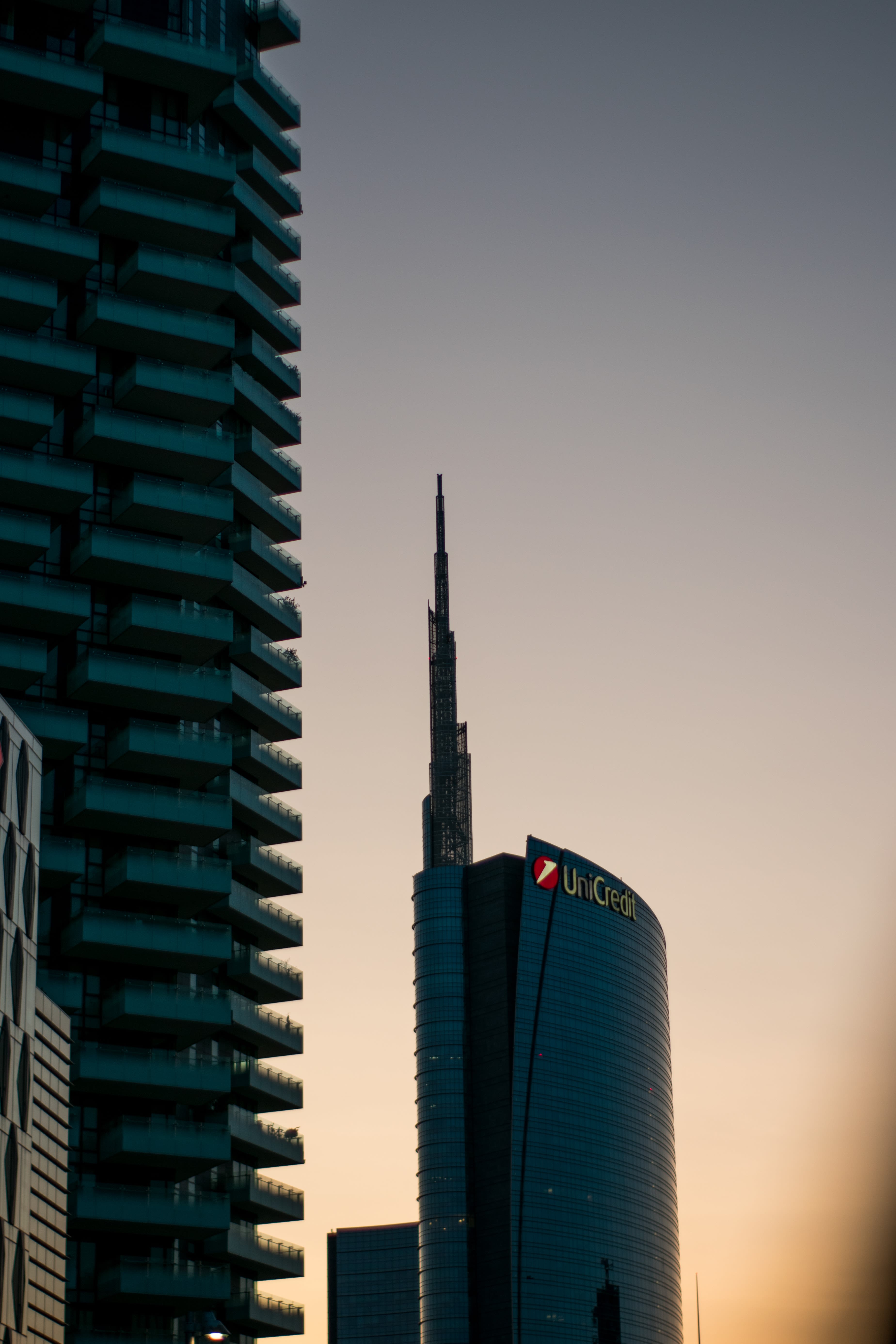
In September 2022, Italy got its second unicorn when Milan-based payments network Satispay raised €320m in its Series D. The funding round involved investors such as Chinese tech giant Tencent, London-based Greyhound Capital and Addition, a VC fund run by American venture capitalist Lee Fixel.
Alberto Dalmasso, the co-founder and CEO of Satispay, says that “the Italian opportunity has been uncovered” by international investors, who have realised that successful fintechs are often leaders in their own local markets before going global.
“We’re going to have great years ahead of us because these deals are simply bringing in money and know-how from the best investors in the world,” he says, adding that the mega funding rounds raised by Milan’s start-ups in 2022 are creating a ripe environment for training talent and attracting further investment.
Over the next 18 months, Satispay plans to open a new headquarters in Milan, and double its current headcount of 300 people as it expands its payments network in Germany and France. Since launching in 2013, Satispay claims to have grown its mobile payment platform to three million customers and 200,000 merchants.
As Italy’s financial capital, Milan has a presence of large institutions including UniCredit, Mediobanca, HSBC and BNP Paribas. In total the city is home to over 16,000 financial companies, including the Italian Stock Exchange (Borsa Italiana), which had 410 listed companies with a total market capitalisation of more than €598bn at the end of September 2022.
Mr Traldi says that the distinctive feature of Milan’s fintech ecosystem is “creativity”, noting that innovation undertaken in the city influences trends in the rest of Italy.
The Bank of Italy, the country’s central bank, also has its first dedicated hub for fintech innovation in Milan, which helps support innovative projects and the adoption of digital technologies in the Italian financial sector. Between 2018 and 2021, the number of fintech companies in Italy increased from 299 to 564, with the highest number (214) based in Milan, according to rating agency Modefinance.
“Italian fintech is experiencing a boom period with boosted growth,” says Chiara Padua, the deputy head of Milan’s Fintech District, a business centre aimed at facilitating dialogue between different stakeholders in Italy’s fragmented financial industry.
Since October 2021, 11 overseas companies have set up in Milan’s Fintech District, including the likes of Klarna, as well as digital banks N26 and Revolut. Ms Padua says that as part of a soft landing programme with the city’s promotional agency Milano & Partners, foreign fintechs are offered legal advisory services and connection with local regulatory authorities.
Vienna, Austria-based trading platform Bitpanda decided to start its Italian operations in March 2021 and has opened a talent hub in Milan’s Fintech District. Since launching in Italy, the company has grown its local customer base from zero to more than 200,000 in less than two years, according to the company.
Orlando Merone, the country manager of Bitpanda’s Italian operations, says that there is “immense market potential” due to the growing pool of tech talent in Italy.
“Milan is not only the gateway to a solid national ecosystem, but also as a city aspires to become a leader in southern Europe,” he says, adding that the city has “always had a strong vocation for financial services” with a large talent pool from its local universities.
There have been several initiatives put in place that make Milan more attractive, such as an exemption from certain taxes and access to flexible employee contracts for start-ups under five years old with revenues of less than €5m.
Despite these, Mr Merone says that “doing business remains a sometimes cumbersome activity”, due to unclear and vague rules that severely limit the city’s attractive potential. This includes flexibility and speed of work permits needed to attract top talent from abroad, as well as Milan’s relatively high real estate prices, which can be prohibitively expensive for early stage start-ups.
Mr Dalmasso of Satispay says that while there is a need for more scale-ups to attract more talent to Milan from other tech hubs, the city is attractive to entrepreneurs seeking extremely fast growth for their business and a great quality of life in the heart of Europe.
“There’s nothing more exciting than being part of building the roots of a new tech ecosystem,” he says, noting that startups that succeed in Italy’s market of 60 million people can grow to a significant size.
Cleantech

A major focus of the Italian national government is to support clean energy technologies. Around €60.5bn has been allocated to investments supporting the green transition via Italy’s national recovery and resilience plan, which is the largest in Europe, according to the European Commission. The same is true in Milan and the Lombardy region.
Given the “variety of initiatives that have been launched across many dimensions”, such as funding, knowledge and talent, Milan has set the stage to become “a relevant ecosystem” in the cleantech space, says Patrick Oungre, head of innovation and corporate VC at A2A, Italy’s largest multiutility, which provides energy and management services across Milan and other municipalities in northern Italy.
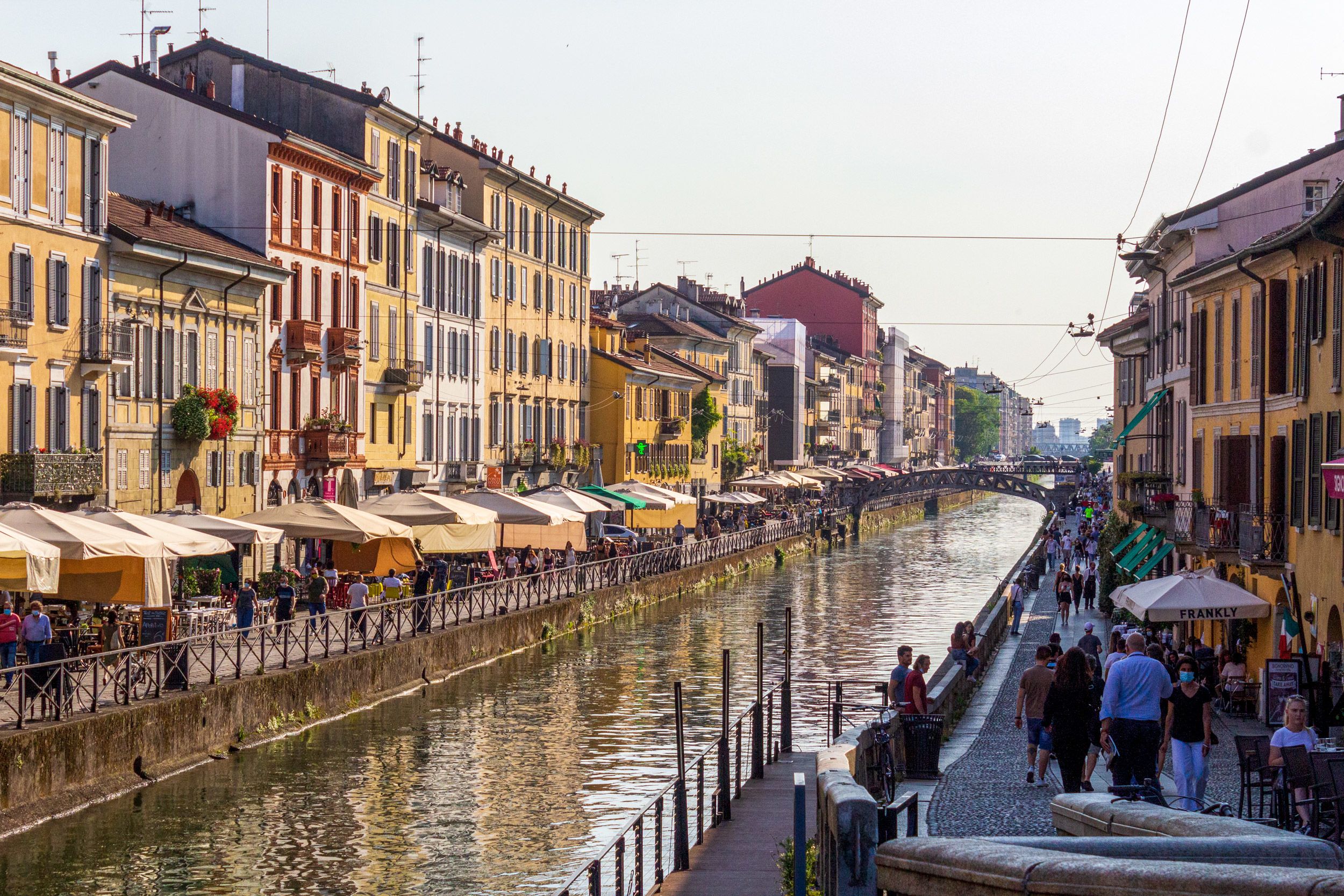
Naviglio Grande in central Milan, one of several waterways through the city. Image credit: Francesco di Rosa
Naviglio Grande in central Milan, one of several waterways through the city. Image credit: Francesco di Rosa
One such initiative founded in November 2021 is Tech4Planet, the second hub of technology transfer created by Italy’s national innovation fund CDP Venture Capital, in collaboration with the Polytechnic University of Milan. A total of up to €55m has been allocated to support tech transfer in areas such as the circular economy, sustainable manufacturing, mobility and water management.
Italy’s large energy companies, such as Eni, Enel and A2A, have also become “super active” in the start-up and innovation space, according to Enrico Noseda, chief innovation advisor at Cariplo Factory, which connects start-ups with corporations.
Mr Noseda says that there have been some “very interesting solutions” in the cleantech space at Skydeck Europe, an accelerator programme based at Milan's innovation district (Mind). This includes HyLight, a French start-up developing a hydrogen powered airship for monitoring power transmission and energy pipelines.
Mr Oungre notes that cleantech is nothing new in Lombardy, given the region’s energy tech cluster, consisting of around 100 businesses and other stakeholders, was founded back in 2009. More than 190,000 employees currently work across 300 cleantech companies in the Lombardy region across several areas, including power generation, renewables, bioenergy and sustainable construction.
Despite this heritage, the recent entry of prominent accelerators focused on sustainability to the ecosystem, such as Silicon Valley’s Plug & Play Tech Center in 2020, highlight Milan’s emerging role in cleantech. Mr Oungre of A2A, which has partnered with the accelerator, believes it will boost the inflow of global start-ups to Milan.
One prominent homegrown cleantech company is Energy Dome, which is developing a long-duration energy storage battery based on carbon dioxide. The company’s first carbon dioxide battery was installed in Italy in May 2022, and is currently operational and grid connected.

Energy Dome, which is based at Polihub in Milan, launched its first 4MWh carbon dioxide-based battery in 2022. Image via Energy Dome
Energy Dome, which is based at Polihub in Milan, launched its first 4MWh carbon dioxide-based battery in 2022. Image via Energy Dome
Claudio Spadacini, the founder and CEO of Energy Dome, says that Milan is “the best city in Italy” for cleantech companies, due to the network of science parks and technological players.
From its base in Polihub, a community of deeptech start-ups at the Polytechnic University of Milan, Energy Dome is able to “significantly improve synergies and create a common knowledge platform”, says Mr Spadacini. While Energy Dome has global ambitions for its technology, Mr Spadacini notes that Italy’s VC ecosystem still needs to mature to the level seen in other European countries and the US.
Mr Oungre says that, given cleantech companies usually sell their solutions into a fragmented market across industries and geographies, more could be done to make Milan a one-stop shop for cleantech.
“Milan should work with governments and innovation agency leaders, not only at national level, but with a global perspective that pushes toward harmonising policies and procurement laws across several countries and cities to enable cross country deployments with low barriers,” he says.
Entrepreneurs round-up
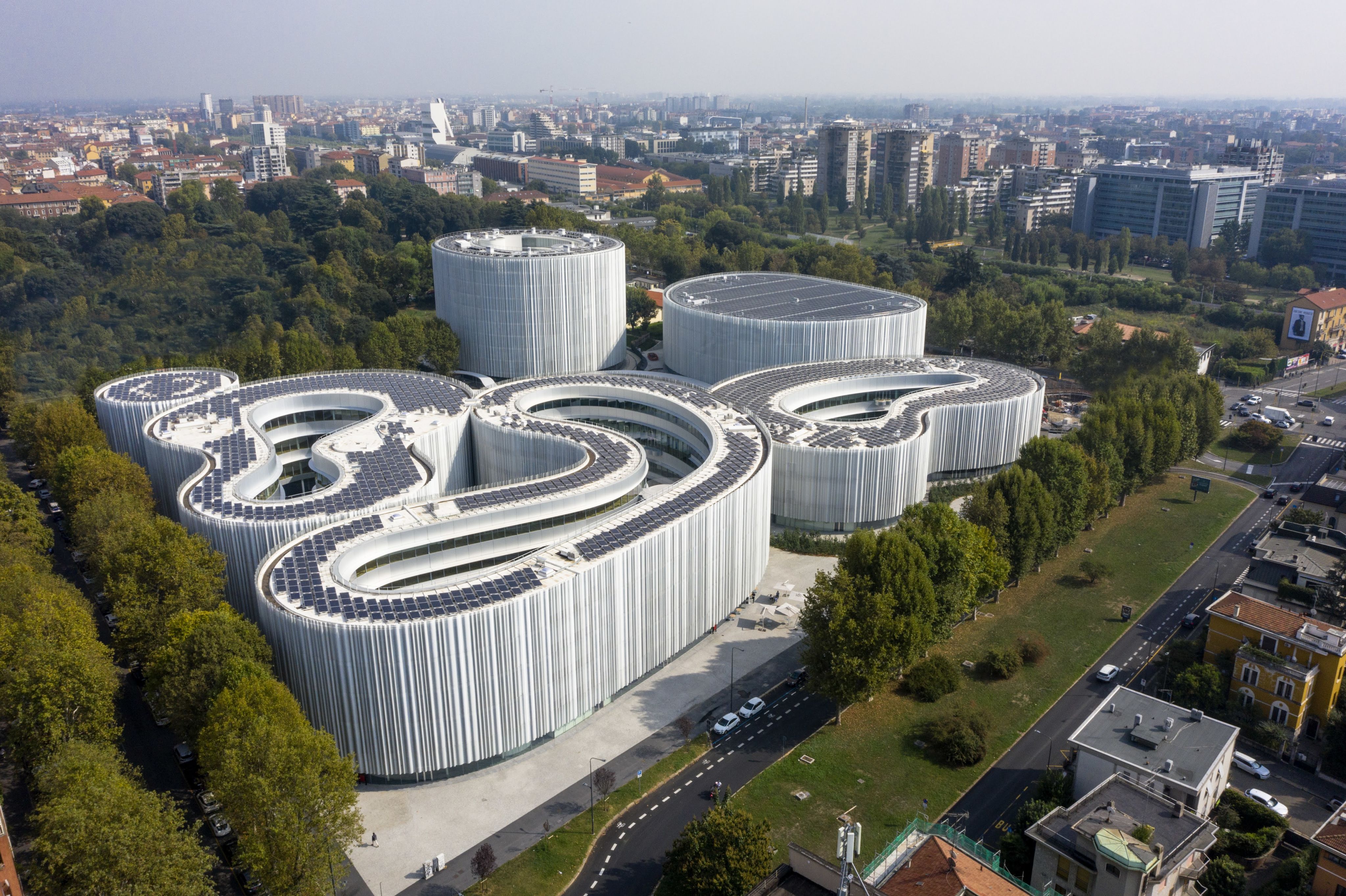
One of Milan’s most prominent homegrown tech companies is Bending Spoons, a mobile application developer, which raised $340m of financing from global investors in September 2022.
Luca Ferrari, the co-founder and CEO of Bending Spoons, says that Milan “could easily be the city with the greatest untapped potential” as an innovation hub.
Relative to its gross domestic product in 2021, Italy attracted just over a tenth the amount of VC funding seen in France and Germany, according to fDi calculations using PitchBook and World Bank data.
While Milan lacks the “inspirational role models” found in the world’s most successful hubs, such as Silicon Valley, Mr Ferrari underlines the “really close knit” ecosystem of start-ups working on a host of innovative ideas.
“There is a good number of really excellent companies in Milan that can play a role on a global level,” he says. These include Casavo, a platform for buying and selling properties in Europe, and WeRoad, a platform that connects solo travellers.
In October 2022, the Swedish music streaming giant Spotify opened an office in Milan, which serves as a hub for its operations in 28 countries across southern and eastern Europe. Milan attracted a record 22 FDI projects in the software and IT services sector in the nine months to September 2022, exceeding the previous highest full-year total of 22 projects recorded in 2021, according to fDi Markets.
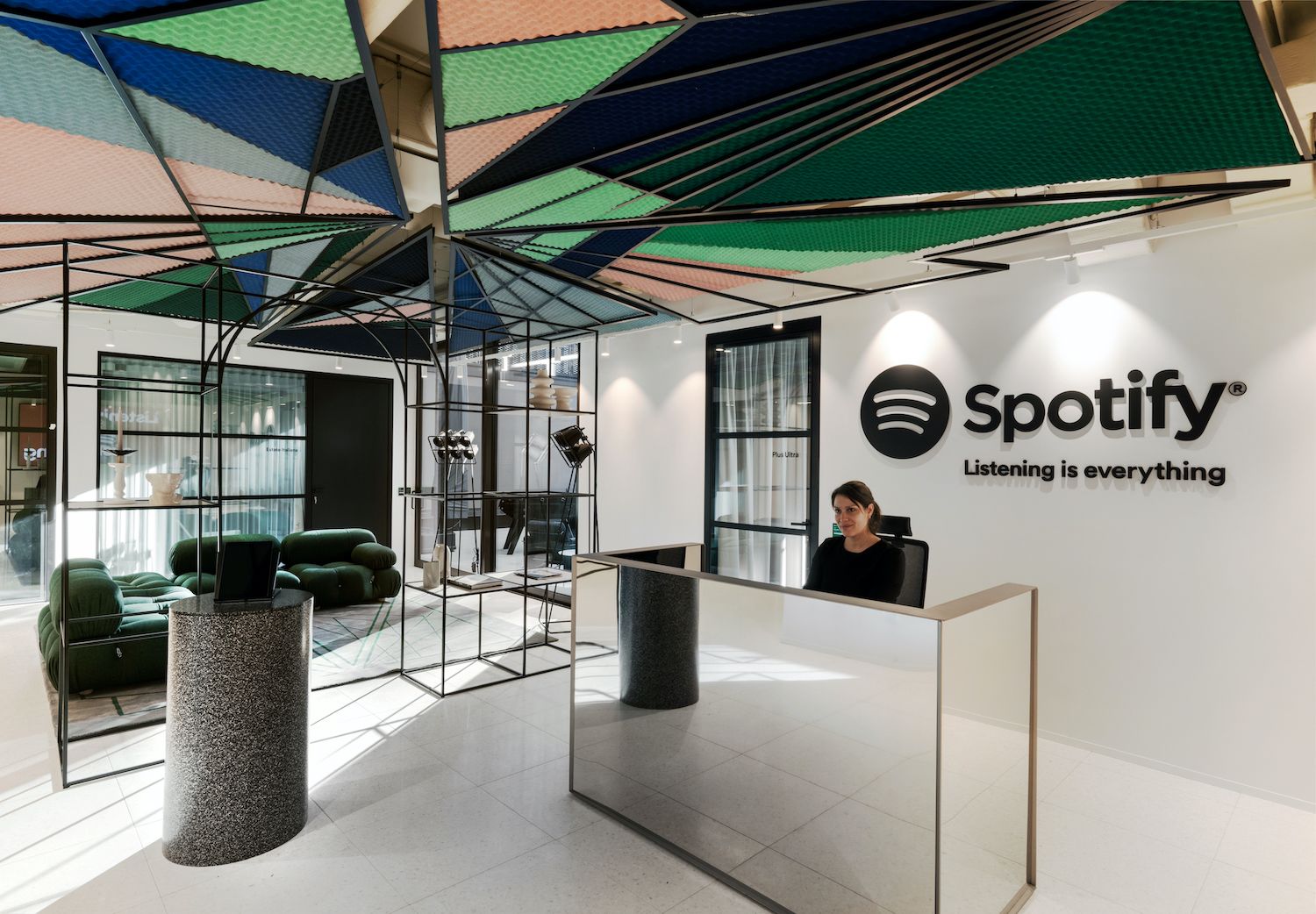
Spotify chose Milan for its hub covering 28 countries across southern and eastern Europe. Image via Spotify
Spotify chose Milan for its hub covering 28 countries across southern and eastern Europe. Image via Spotify
Among these investing companies is Doctolib, a Paris-based scale-up that helps users find doctors and make appointments, which opened an office in Milan back in 2021.
Nicola Brandolese, CEO of the Italian operations of Doctolib, says the Lombardy region is attractive due to its openness to digitalisation and having Italy’s highest number of healthcare professionals (15%) and medical facilities (14%).
“In this context, the role of Milan is crucial,” he says. “[This is] an advantage that effectively makes the city a natural spot for the flourishing of innovation.”
The innovation coming out of Milan and Lombardy also stands out on a European level, due to the large concentration of companies, research centres and incubators, according to Giovanna Dossena, CEO of AVM Gestioni, an investment firm with funds focused on sectors such as impact finance, robotics and cyber security.
One prominent innovation hub is Cariplo Factory, which specialises in entrepreneurship programmes and connecting corporates with start-ups. In early 2022, it set up a six-month accelerator programme named Skydeck Europe through a partnership with Berkeley Skydeck, the global start-up accelerator of the University of California, Berkeley.
Enrico Noseda, the chief innovation advisor at Cariplo Factory, says that the fact Milan was chosen for Skydeck’s first European accelerator program is testament to the growth of the city’s ecosystem. Start-ups on the SkyDeck Europe programme, which can come from any sector, will receive €145,000 of investment and spend time at both Berkeley and Milan Innovation District (Mind).
Mind is a new $4bn mixed-use development on the former 100-hectare site of the Expo 2015 hosted by Milan, which is being built by Italian public entity Arexpo and Australian real estate company Lendlease.
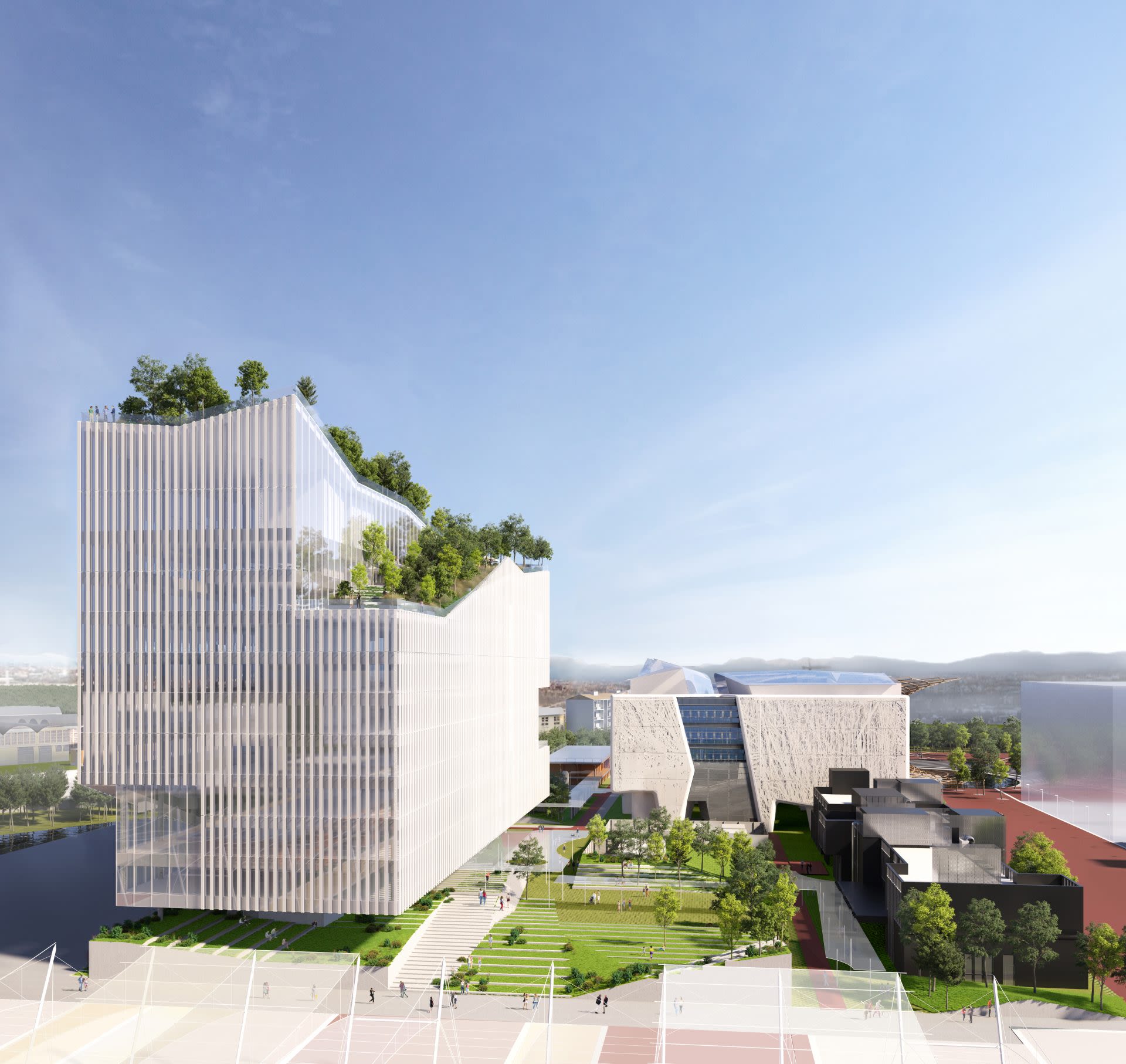
Human Technopole is building a scientific research centre at Mind with ten floors including laboratories, terraces and green areas. Image via Mind
Human Technopole is building a scientific research centre at Mind with ten floors including laboratories, terraces and green areas. Image via Mind
Aside from hosting accelerators, Mind has a focus on life sciences and the city of the future. The redevelopment project has already welcomed companies such as pharmaceutical leaders Astrazeneca and Illumina, Human Technopole’s campus for life sciences research and the new IRCCS Galeazzi hospital.
“The central idea of Mind is to leverage the existing strengths of the region and create a research centre at the regional and national level,” says Stefano Minini, Mind’s project director.
Bio4Dreams, an incubator for biotechnology start-ups, also decided to move its laboratory and headquarters to Mind, which is expected to house around 60,000 people once fully operational.
“Mind is going to be game-changing, not only for Italy, but for southern and eastern Europe,” says Fabio Bianco, chief scientific officer at Bio4Dreams, noting the strong connectivity between industry, start-ups and research at the major campus.
In association with Milano&Partners. Writing and editing were carried out independently by fDi Intelligence.
Find out more about Milan's innovation ecosystem



